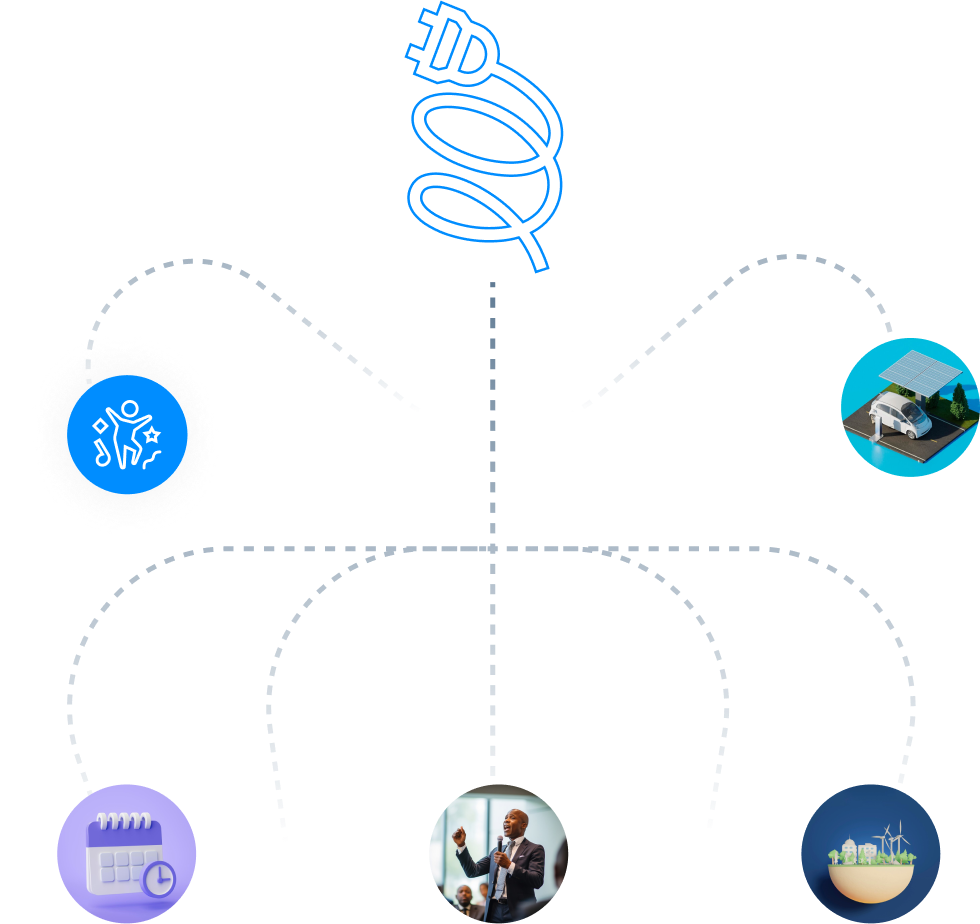Structure
SAM-E 2025 structure
The event is scheduled to take place over three days, from May 29 to 31, 2025, at the Palais de la Culture in Abidjan. The first two days will be devoted to conferences, workshops and round tables, and the last day to awards ceremonies and demonstrations of environmentally-friendly vehicle performance, followed by a gala dinner.
The show will be attended by investors, energy and automotive companies, and experts from all over the world. It plans to make exhibition rooms and stands available to sponsors and partners.

Structure
SAM-E in Abidjan will provide an opportunity for politicians, experts and all players in the sector to discuss a range of issues relating to ecological mobility.
Show content and topics
Institutional, political and legislative frameworks
Government policies and tax incentives to encourage the adoption of environmentally-friendly means of transport are often limited or non-existent in many African countries. Effective regulation and policies are essential to encourage the development of the green vehicle market.
Development of recharging infrastructures
Install public and private charging stations to facilitate the adoption of electric vehicles.
Development of Bus Rapid Transit (BRT) networks
BRTs are efficient and affordable public transport systems that can reduce congestion and emissions.
Local battery production
Encourage local battery production to reduce dependence on imports and create jobs.
Improving urban rail infrastructure
The development of trains and metros can offer high-capacity sustainable transport alternatives.
Stricter emission standards
Impose higher emission standards for internal combustion vehicles to reduce air pollution.
Integration of soft modes of transport
Encourage the use of bicycles and walking by creating cycle paths and pedestrian zones.
Promoting hybrid vehicles
Hybrid vehicles can be an intermediate step in the transition to electric vehicles.
Electricity generation from renewable energy
Invest in solar, wind and hydroelectric energy to power electric vehicles and transport infrastructure.
Integration of renewable energies in transport
Renewable energies to power electric buses, trains and boats.
Implementation costs
The acquisition costs of hybrid and electric vehicles (EVs) remain high, making them unaffordable for many people in Africa. Electricity generation and distribution infrastructure must also be improved to ensure that the electrical energy needed to power these vehicles is available and affordable.
Compact urban planning
Promote compact urban planning that reduces travel distances and facilitates the use of public transport and soft modes of transportation.
Access to electricity
Many parts of Africa still lack access to electricity, making eco-mobility difficult to implement. To encourage the transition to eco-friendly vehicles, it is essential to improve access to electricity in general.
Decarbonizing transport in Africa
Decarbonizing means of transport in Africa (public transport, car-sharing, cycle paths, biofuels, electric and low-emission vehicles, etc.) is a major challenge for the transition to sustainable development and the fight against climate change. Transport is one of the main sources of greenhouse gas emissions in many countries, and Africa is no exception.
Dependence on fossil fuels
In many African countries, electricity generation is largely dependent on fossil fuels. The transition to green mobility must be accompanied by a shift to cleaner, more sustainable energy sources to maximize the environmental benefits of transport electrification.
Awareness-raising and education
Many people in Africa are not fully aware of the benefits of green mobility in terms of reduced carbon emissions
, fuel costs and sustainability. Effective awareness-raising and education are needed to encourage the adoption of environmentally-friendly means of transport.
Contact us
An Ecological Mobility Fair in Africa is a unique event of its kind, held for the very first time on the African continent.
Send us a message
Get in touch with us
SAM-E General Commissariat :
+2250707386198
+2250101401292
If you have a question about our programs, please send an e-mail to the SAM-E teams:
contact@sam-e.ci
